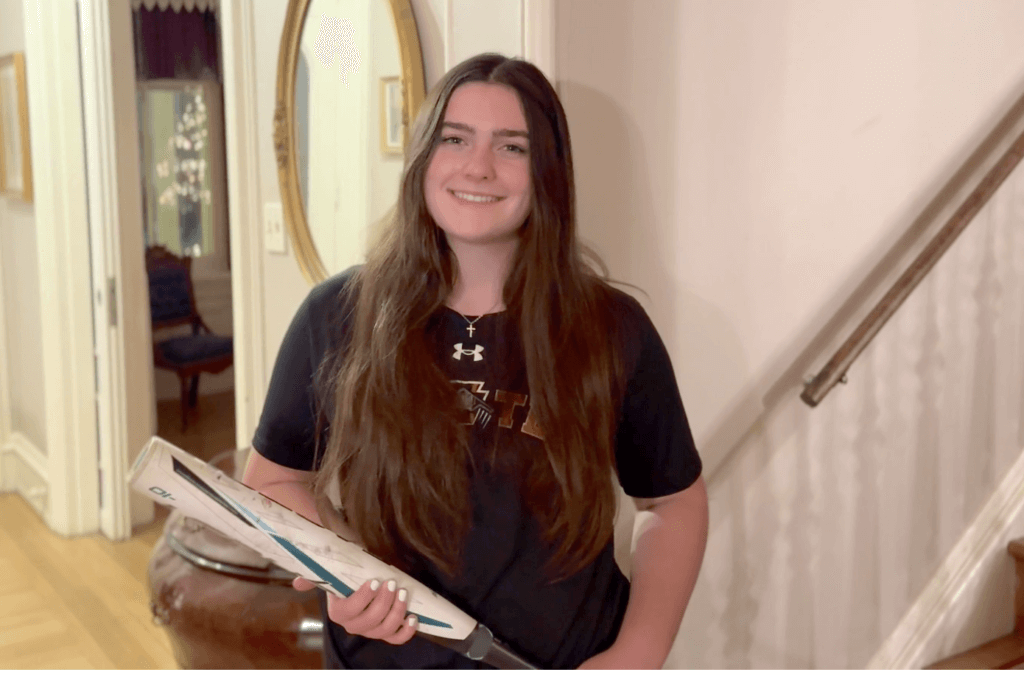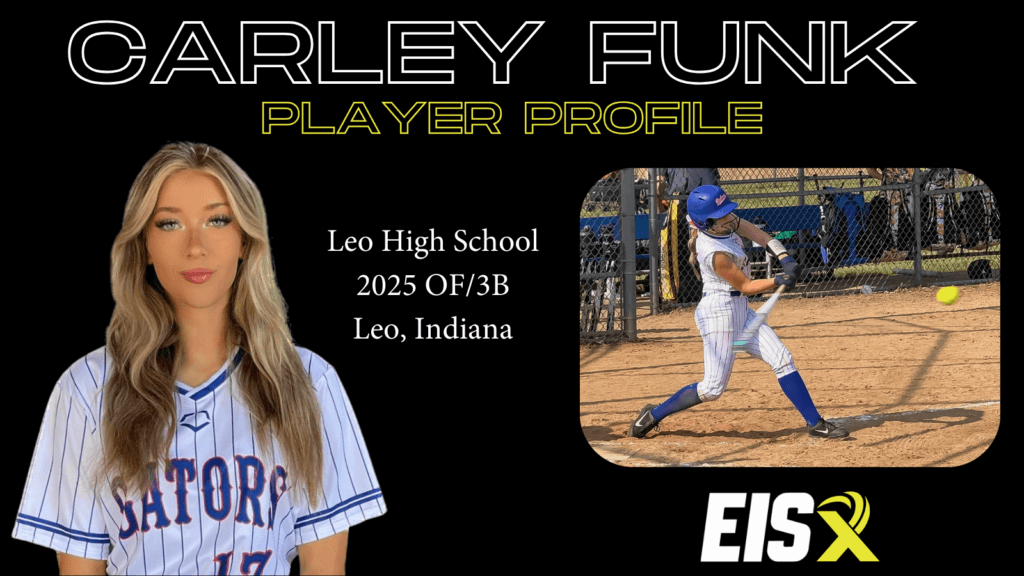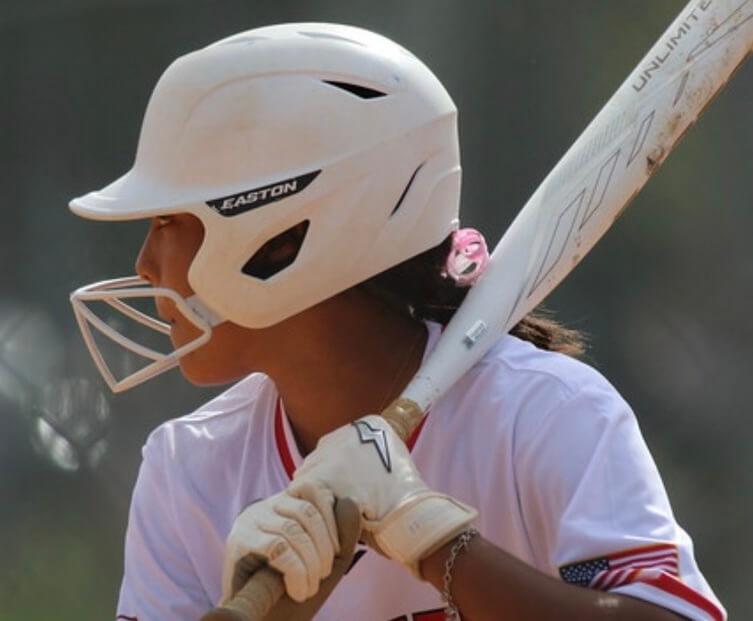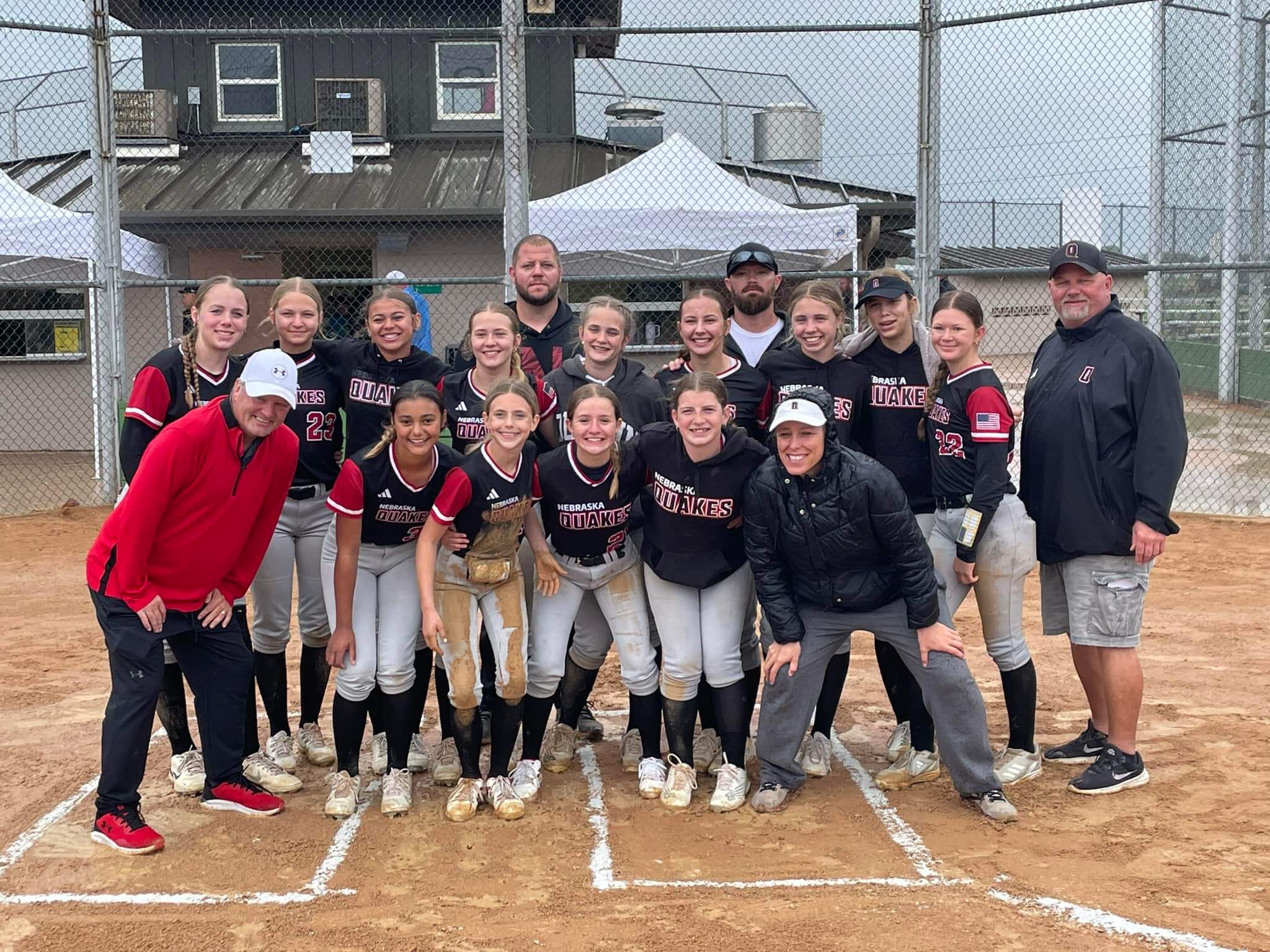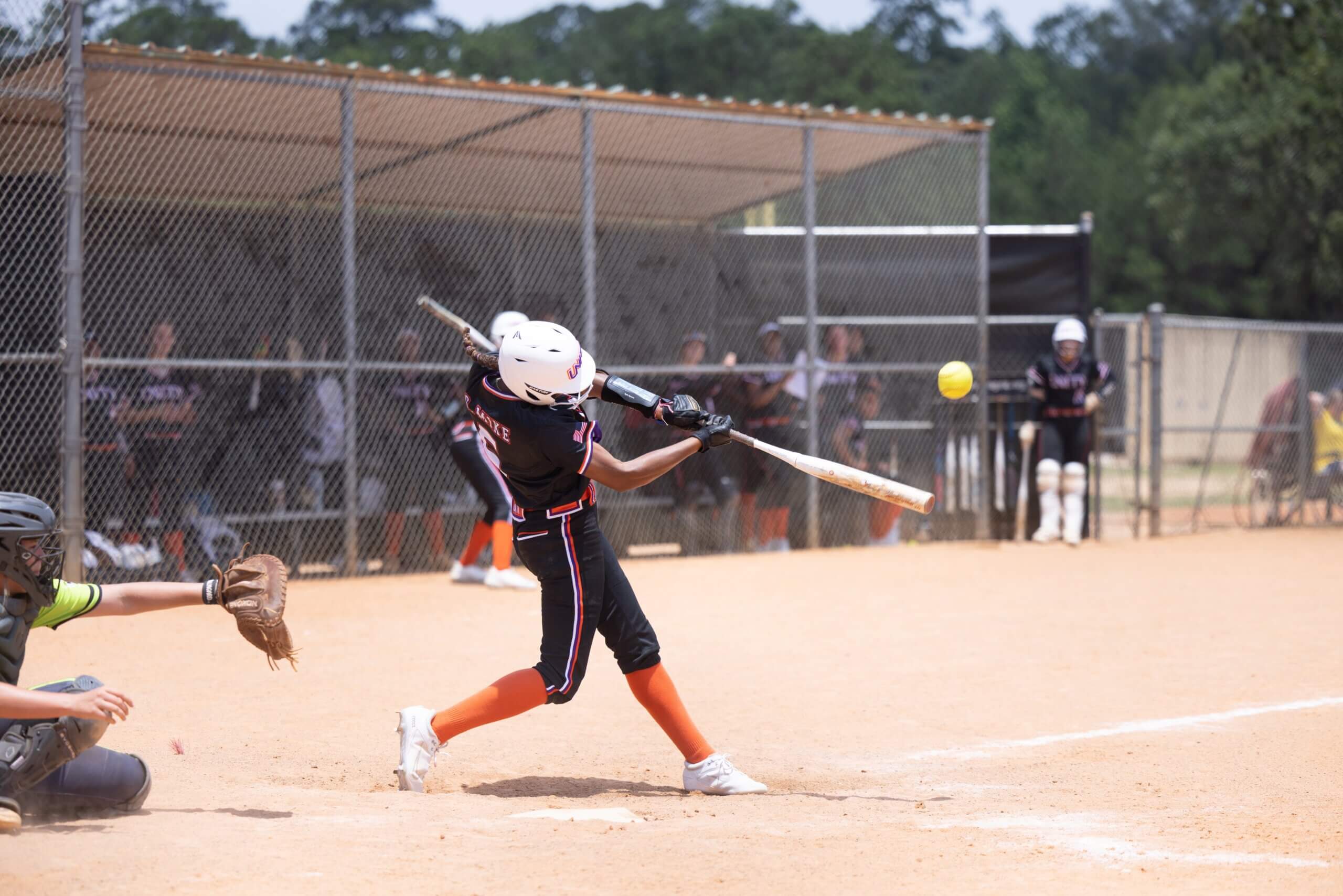
On Wednesday, we published the story titled Pro News: Athletes Unlimited AUX Winners Announced After Season Two Completed in which it was announced that Jessi Warren was the Defensive MVP for the league this year after a vote of the league’s players and facilitators.
Over the last several years, Extra Inning Softball was privileged to have the voice of Jessi on our site as she wrote over two dozen articles covering a range of topics.
One the most powerful pieces Jessi submitted to us was a candid first-person article in which she she touched on the mental health struggles that she had gone through–even during the magical 2018 Florida State season when she helped lead the Seminoles to a National Championship.
Winston Churchill, the great English leader, once wrote:
“Success is not final… failure is not fatal: It is the courage to continue that counts.”
Jessi has found success at every level not just in softball, but in life, and we are grateful for her example and willingness to share her story… here are two articles she wrote that would be great for coaches and parents to consider sharing with the young athletes they are helping guide in life.
— Brentt Eads, Extra Inning Softball
*****
This May Be the Most Important Article You’ll Read All Week: Jessi Warren on Mental Health Awareness for Student-Athletes
Originally published March 9, 2022, on Extra Inning Softball

Jessi Warren has quite the softball resume:
- All-American third baseman for the National Championship-winning Florida State Seminoles (2018)
- a successful professional player with the USSSA Pride and Athletes Unlimited
But as great as her athletic successes have been between the lines, she is candid that she had her struggles off the field too:
“I have dealt with depression and anxiety due to the pressure of life and athletics in the past,” she admits. “I still deal with anxiety to this day and I hope talking about this may help someone… it may make someone feel heard and seen.”
Just this week, we saw once again that this is an ongoing tragedy as 22-year-old Stanford soccer goalie Katie Meyer was confirmed by her parents to have died from suicide.
May we all be sensitive to this with those around us and take the time to appreciate Jessi’s poignant and powerful thoughts on this very important topic…
*****
After seeing/hearing about so many deaths by suicide, I wanted to touch on a subject that I take very seriously: mental health.
A crucial question we need to ask ourselves in the sports world is this one: “Why is mental health not being taken as seriously as that of the physical health of an athlete?”
Stats show that 1 in 5 people in the world are living with a mental health condition at some point in their lives and to narrow down even more, 1 in 3 athletes suffer from a mental health condition.
That is about 35% of the athletic population.

People handle pressure and its symptoms with therapy, medication, meditation and exercising and those are helpful. Having been a student-athlete, I know first-hand how we certainly have all kinds of pressure on us—pressure to perform in games, in the classroom, in our daily lives, etc.
Being a student-athlete at the college level carries with it the expectation of maintaining good grades on top of going to practice and succeeding in competitions.
On the physical side, when athletes get hurt—such as pulling a hamstring, spraining an ankle, fracturing a wrist or whatever it is that forces one to the sidelines—that athlete receives time to heal.
We can often see the impacts of the physical injury, having an understanding of what it is and why that specific athlete is taking time to recover.
But what happens when those injuries aren’t visible? When they’re not physical but more mental and/or emotional-based?
When are people going to start allowing athletes to step away to take care of their health on the inside… when it’s not just a physical injury?
I think an athlete’s mental and emotional health is ignored too often, simply because can’t see or evaluate these mental injuries from machines as easily like we can a broken bone or a pulled muscle.
Depression and anxiety are REAL and can be life-impacting, even life threatening… and something needs to change.
I can be speaking for many athletes, or I can be speaking for myself, but as an athlete we carry a persona in the public eye.
The public oftentimes sees us and thinks we can power through anything and that we are able to push through obstacles most can’t because we are built different. Our successful accomplishments on the field of competition are praised and celebrated and we can be assumed to be accomplished because we’re “Superhuman.”
No! That needs to stop! We athletes are HUMAN… we are PEOPLE first and foremost.
Just because we can be fearless warriors–strong, and unstoppable in the public’s eyes–does not mean we are immune to stress and the real-life problems we may deal with outside our sport.
From personal experience, I know asking for help from people can be hard.
I suffer from a GAD (general anxiety disorder) as well as a panic disorder and ADHD (attention-deficit/hyperactivity disorder).
People think just because we are athletes and carry this demeanor of “toughness” around, we should be able to get through whatever it is we are dealing with or thrown at us and that we don’t really need help from people.
Being an athlete, trying to balance school requirements, family and friend relationships and the workload needed to excel in your sport, brings with it a lot of stress. Most may not know to what levels, but we DO deal with more than the public knows.
Many of us athletes hold ourselves to our own high standards and when we don’t feel like we’ve been successful or are satisfied with the goals we set for ourselves, we tend to overthink, to stress and to put added pressure on ourselves.
The physical, athletic performance then can be affected by the athlete’s mental and emotional health as the mind becomes focused on other things, confidence decreases and then the pressure to perform and “prove” to people you don’t “suck” increases.
People who are on the outside looking in, who don’t experience an athlete’s individual personal daily life, can’t understand it. Again, they think it’s as simple as just figuring it out on our own, but sometimes that’s not enough and the outside world lacks awareness of what is really going on.

Sadly—and sometimes tragically in the competitive sports world of today–it can be that when an athlete takes the time to focus on his or her mental health, they are considered not dedicated, weak or a quitter.
People are always saying to us as athletes “prioritize your mental health,” “do this” or “do that,” but then, too often, they don’t have our backs and provide the support needed. When we may take that crucial time to heal, we can be criticized and it gives mixed signals.
I feel the key to fixing this is to allow athletes to be vulnerable without judgment. We must open conversations to acknowledge the feelings that are happening inside an athlete’s head.
I admit that I do struggle daily with my mental health. I talk to a therapist and am still trying to figure ME out, trying to understand why my brain works the way it does, and— although that may make me different in some ways—trying to accept that and know that THAT’S OK!

It’s OK if I wake up some mornings feeling sad; it’s okay if I wake up some mornings overly excited about nothing in particular.
People may never understand how MY brain works, but that’s OK!
Just remember that, when it comes to helping others, a little gesture can go a long way.
To all the parents with kids who are becoming athletes or are already in athletics, take a step back from yelling at them after a bad game (sorry to break it to you, but those tough games do happen, and they will happen a lot in the athletic career).
Here are several things I recommend parents due to help their athletes:
- Encourage your child to talk to you,
- Give them a safe space to be open with you, with no judgment while you have an open mind and a listening ear,
- Try to focus on understanding them and where they are coming from or what they are feeling,
- Allow them to have a voice and make sure they feel that you care and that they are being heard.
That’s something I lacked as a child: I never felt that I had a safe place, to be open and talk about things. I wasn’t close with my father, and I was never open with my mother and, to this day, I am still learning how to navigate a lot…
… but the difference is that I now have that safe space, where I can be open and be me. I have friends who will drop what they’re doing and come have lunch with me or talk to me.
Be that person for someone!
If you’re wondering what you can do to help or how to get help, here is a list of things I believe are important to do for your mental health:
- Talk about your feelings
- It can help deal with times when you feel troubled
- Stay active
- Exercising can boost your self-esteem and increase dopamine and endorphins.
- Eat well
- Our brains need a good mix of nutrients to stay functioning just like our organs.
- Keep in touch
- Call people, write them a letter…keep lines of communication open, spread love.
- Take a break
- A change of scenery is always good for you, give yourself some ‘me-time’.
- Accept who you are
- We are all different, and it’s so much healthier to accept who you are then to try and wish yourself into someone you’ll never be.
- ASK FOR HELP:
- Nobody in this world is a superhuman. We have feelings and all feel tired or overwhelmed by how we are feelings. If things become too much, ask for help. Friends and family may be able to offer help and if not, there are local services around everyone that would love to help.
Remember too these five very important truths:
- YOU ARE ENOUGH.
- YOU ARE LOVED.
- YOU ARE WORTHY.
- YOU ARE DESERVING OF LIFE.
- YOU MATTER!!!
— Jessi Warren, Extra Inning Softball
*****
Inside Pitch: Softball Great Jessi Warren Reveals That “In My Battles with Anxiety & Depression… There Was a Point When I No Longer Wanted to Be Here”
Originally published May 3, 2022, on Extra Inning Softball

Extra Inning Softball contributor Jessi Warren, the All-American infielder for the 2018 National Champion Florida State Seminoles, has been at the highest echelons in the sport.
Her famous spectacular diving catch in the clip below was voted as the ESPN SportsCenter #1 Play of the Day:
Jessi has also been a two-time Cowles Cup champion in the National Pro Fastpitch league (2018, ’19) and also will be playing for the Women’s Professional Fastpitch (WPF) league this year also.

She has checked the box on pretty much every level of play in the sport and, from the outside, the athlete seems to have lived the dream life—successful on every level, a champion and a star player.
But as we all struggle, Jessi opens up in today’s blog about the terrible struggles with anxiety and depression she’s battled with most of her live.
As she explained in her previous first-person Inside Pitch for Extra Inning Softball:
“I have dealt with depression and anxiety and wanting to take my life due to the pressure of life and athletics in the past. I still deal with anxiety to this day and I hope talking about this may help someone… it may make someone feel heard and seen.”
With the third collegiate suicide in the last month or two still leaving the sports world stunned and wondering how these issues can be addressed, Jessie goes into greater detail here on her inner struggles to, hopefully, help those in similar situations find the help that will turn their lives around.
Note: some of the experiences Jessi went through and describes below may be disturbing to some readers… discretion is advised.
*****
Panic Attacks
My journey with my mental health began my sophomore year of high school.
I was unaware of what was happening with me psychologically, but it was bad. All the years of feeling abandoned from my childhood surfaced and hit me like a train.
I remember beginning to have panic attacks that would keep me from school, for weeks at a time and all I wanted to do was sleep because, when I would sleep, there was no fear: the fear coming from the panic attacks, the fear of feeling like I was dying and the out-of-body experiences I was dealing with.
To put it into perspective, the panic attacks start with chest palpitations when my heart is feeling as if it’s beating super-fast and about to explode out of my chest.
Then, suddenly, I feel as if I can’t breathe… I get very dizzy, things start moving in slow motion and my heart feels as if it’s starting to not want to beat at all. My body goes completely numb and I lose hearing.
It’s by far the scariest thing I’ve experienced.
I’m a very honest person, so I want to share my complete story and with that comes my past use of drugs. I tried leaning onto them in high school to help with the anxiety, but my anxiety became worse when I would take them and almost made me feel as if I needed to run in front of a car to feel alive.
It was scary, feeling the way I felt and feeling so helpless with no one to go to.
I never talked to anyone about what I was experiencing and I would miss weeks of school at a time because I just didn’t want to deal with the anxiety of having to sit in class and pretend that everything was OK.
With time, things became better and the anxiety subsided. The panic attacks wouldn’t happen as often… until I got to college and things actually became worse.
Problems in College
I thought I could mask it with athletics, but as a very successful athlete, I had the pressure to perform and be successful and everything started spinning out of control.
At one point, I found out I had a labrum tear in my shoulder, which for the longest time hurt me so bad and I would always sublux when I hit (meaning my shoulder would come out of place).
The doctor told me I needed surgery, but from the things I experienced in high school—how I felt while taking certain things—I began to get anxiety about the surgery and how I would feel on the anesthesia.
I eventually opted out of surgery and decided to play through my injury. Ultimately, things kind of seemed to be going in the right direction.
The thing about anxiety, however, is it creeps up on you so quickly and unexpectedly, the immediate feeling of being overwhelmed times 100 eventually led to more panic attacks for me.
I cried almost every single day of my college career having to deal with this anxiety.

I began seeing a therapist twice a week, and, eventually, was asked if I wanted to be medicated. I was told I would be taking Xanax, but knew from past experiences that was something I didn’t want to be put on—it is addicting–and I wanted to cope with my anxiety in a natural way (although sometimes that doesn’t help, either).
I went to a doctor and it was suggested I be put on birth control to see if balancing out my hormones would help, so I started taking birth control medication.
I began to get counseling but seeing and talking to the therapist I was going to almost felt like it made things worse, only because she was making me relive my past which I didn’t want to do.
However, that was a key part of my healing process and talking about those things eventually would help me… but at the time I didn’t see that.
In a Black Cloud
Eventually, I stopped going to my counselor, thinking things were getting even worse by seeing her. I felt like I was living two completely different lives: my normal everyday anxiety/panic life and my softball life.
After a while, softball was my outlet for my anxiety and, when I would be on the field, I would never have any type of anxiety. I remember most games I would just beg internally for them to go into extra innings because, the second I would step off the field, the panic and anxiety would come back in and take over.
I often felt I was a walking in a black cloud.
I didn’t want to be around people because I felt I was just making everyone sad all the time with how I was feeling and what I was experiencing so I would either be home or playing softball.
I remember trying to explain myself to people and they just laughed and said that it wasn’t real. That made me feel so alone with what I was dealing with that I feel I never really got to experience college as much as I would have liked.
Occasionally, on my good days, I would go hang and have fun with the girls, but most days looked different, with me in my room and in bed trying to figure out what was wrong with me. I would ask myself: “Why am I different from everyone else?” and “Why am I the only one going through this?”
Now, looking back, the reality is that many other people were probably experiencing the same exact thing as me, but in a different way… and also trying to hide it.
I made it through college and hit the real world, and guess what? When I thought things couldn’t get any worse… they did!
Pros… & On My Own
Living on your own, managing finances by yourself, paying bills, finding a job, creating your own routine and schedule… all these things were taken care of in college and then, suddenly, thrown on me.
It was a lot to deal with.
I began harming myself and, in 2019, there was a point when I no longer wanted to be here because I was dealing with a lot internally.
There were multiple occasions where I would get in my car and start driving toward the Skyway Bridge in St. Petersburg, Florida, just wanting to feel free of fear and pain.
I felt as if a big black raining cloud was following me around 24/7 no matter where I went—it was so emotionally and mentally draining.

I remember quitting the job I was working mid-day. I just felt like it was too overwhelming to pretend to be this happy person around people and trying to maintain this image of a happy person that I wasn’t on social media, to hide all these secrets and pain for the public eye…
… because I’m Jessi Warren.
I was pretending to be this amazing happy super star athlete that’s got her life together and is such an amazing athlete that wins all these awards, and plays softball so well. For the longest time that’s who I THOUGHT I was, but I wasn’t living up to those expectations of my fans and audience anymore at the professional level.
I just felt so consumed and I couldn’t deal with the faking anymore. I remember texting one of the employees at USSSA and telling her I needed to go home and see someone, and I thank God for their understanding and helping hand in getting me the help I needed.
Not Alone
So here I am here today, now in 2022, feeling happier and continuing to figure out how to manage and deal with my anxiety. I was diagnosed with a panic disorder and general anxiety disorder, and I’m OK with telling the world!
I struggle and have my days, but those “bad” days are no longer the days I use to experience alone; today, I have people in my corner.
Also, I no longer want to deal with this on my own and I don’t have to struggle in silence. Most importantly, if this is something you deal with, then neither do you!
It’s okay to not be okay, but what’s NOT okay, is being alone and feeling like you’re under water. I’m learning that I have people in my corner that want to help, but you just must reach out and talk too.
Don’t be silent anymore… reach out and get the help you so deserve.
Each of us should be able to live a beautiful and fulfilling life.
— Jessi



